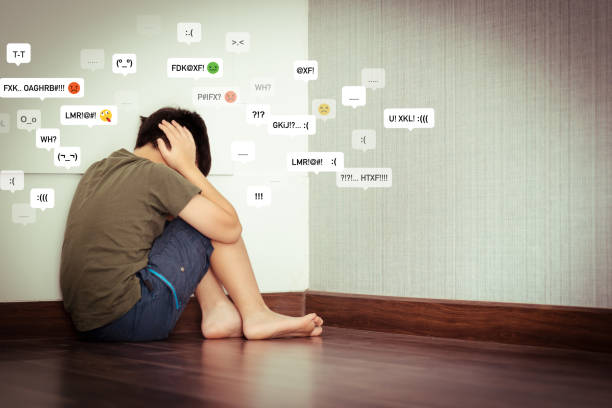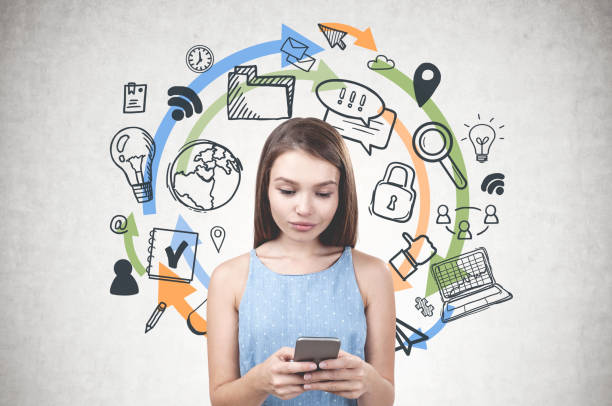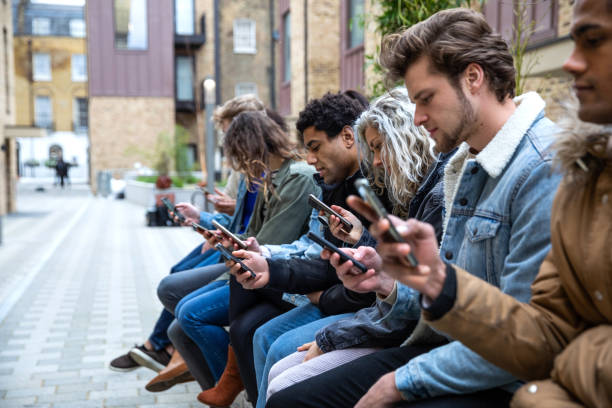Social media has become an undeniable force in our lives, bringing connection, entertainment and information at our fingertips. However, for many, the allure of these platforms can turn into a problematic addiction, raising concerns about social media addiction. Delving into the psychological factors fueling this phenomenon can help us navigate our online experiences more mindfully.
The Dopamine Dance: Reward and Reinforcement
A key factor in social media holding our attention lies in the brain’s reward system. Likes, comments and shares trigger the release of dopamine, a neurotransmitter associated with pleasure and satisfaction. This creates a positive reinforcement loop, encouraging us to repeat the behavior of engaging with social media in hopes of experiencing another dopamine surge. This mechanism is similar to how addictive substances work, making it easy to understand why we crave the fleeting satisfaction that social media can provide.
The fear of missing out (FOMO): Social comparison and validation

Social media feeds often present a curated version of other people’s lives, replete with highlights and positive portrayals. This constant exposure can fuel fear of missing out (FOMO), a feeling of anxiety and inadequacy that stems from the belief that others have more fulfilling experiences. This can lead to compulsive checking of social media in an attempt to stay informed and alleviate FOMO, further perpetuating the cycle of engagement.
The Need for Belonging and Social Connection
Humans are social creatures with a fundamental need for belonging and connection. Social media platforms can fulfill this need by providing a sense of community and belonging. We can connect with friends and family, join groups with shared interests, and feel a sense of belonging to something bigger than ourselves. However, this online connection can sometimes come at the expense of neglecting real-life relationships, leading to feelings of isolation and loneliness despite the virtual connections we maintain.
The power of positive reinforcement: Algorithmic manipulation
Social media platforms are designed to keep us engaged, and their algorithms play a major role in that. These algorithms are constantly learning our preferences and tailoring our feeds to show content we’re likely to engage with. This creates a personalized echo chamber where we are primarily exposed to views and opinions that reinforce our existing beliefs, further strengthening our commitment.
The impact on mental health: Anxiety, depression and self-esteem

Excessive use of social media has been linked to negative effects on mental health. Studies have shown a correlation between increased use of social media and symptoms of anxiety, depression and low self-esteem. Constant comparison to the seemingly perfect lives of others can lead to feelings of inadequacy and social anxiety. In addition, the fear of missing out and the pressure to maintain a positive online image can contribute to feelings of anxiety and depression.
Breaking the Cycle: Strategies for Conscious Use

While social media can provide many benefits, it is important to be mindful of our habits and recognize the potential for addiction. Here are some strategies to break the cycle and develop a healthier relationship with social media:
- Set time limits: Set specific times for checking social media and stick to them. Use tools like app timers and website blockers to strengthen self-policing.
- Curating your feed: Be selective about who you follow and what content you engage with. Unfollow accounts that make you feel inadequate or anxious and focus on content that inspires and motivates you.
- Prioritize real connections: Make time for face-to-face interactions with friends and family. Nurture your real-life relationships to combat feelings of isolation and loneliness.
- Engage in alternative activities: Find hobbies and activities that bring you joy and fulfillment outside of the realm of social media.
- Get professional help: If you’re having trouble controlling your social media use and it’s significantly affecting your daily life, consider seeking professional help from a therapist or counselor.
Conclusion: Towards a balanced relationship with social media
Social media can be a valuable tool for connecting, informing and entertaining. However, understanding the psychological mechanisms that fuel social media addiction is crucial to maintaining a balanced and healthy relationship with these platforms. By being mindful of our commitment, setting boundaries and prioritizing real connections, we can reap the benefits of social media while protecting our mental well-being. By making conscious choices and leveraging these strategies, we can ensure that social media serves us, not the other way around.


